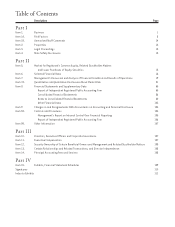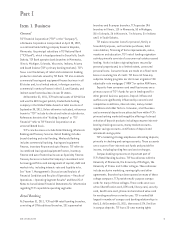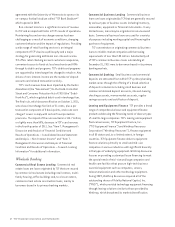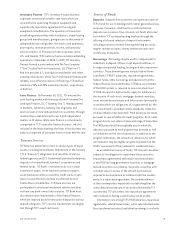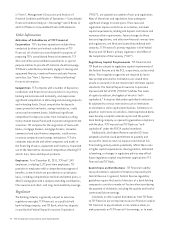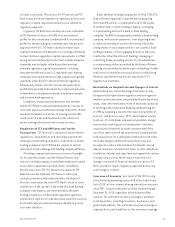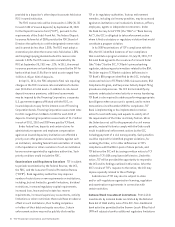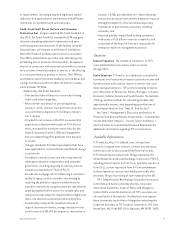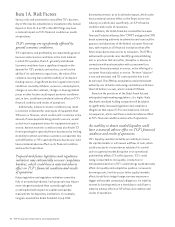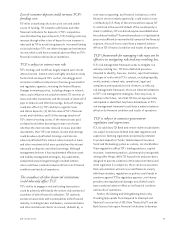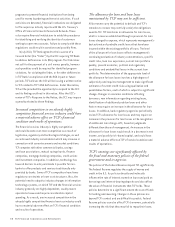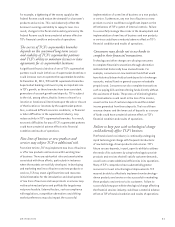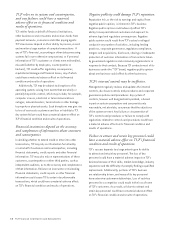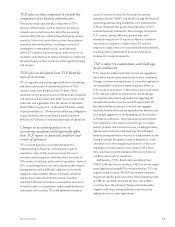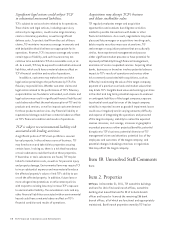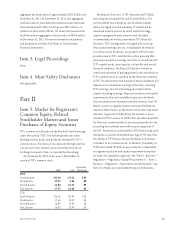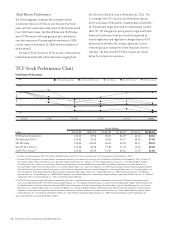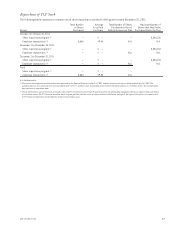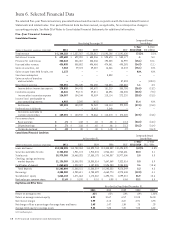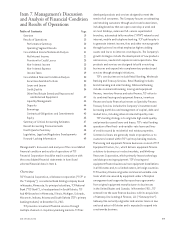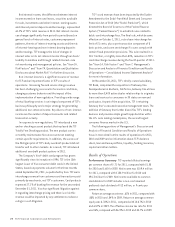TCF Bank 2011 Annual Report Download - page 28
Download and view the complete annual report
Please find page 28 of the 2011 TCF Bank annual report below. You can navigate through the pages in the report by either clicking on the pages listed below, or by using the keyword search tool below to find specific information within the annual report.programs to prevent financial institutions from being
used for money laundering and terrorist activities. If such
activities are detected, financial institutions are obligated
to file suspicious activity reports with the U.S. Treasury’s
Office of Financial Crimes Enforcement Network. These
rules require financial institutions to establish procedures
for identifying and verifying the identity of customers
seeking to open new accounts. Failure to comply with these
regulations could result in sanctions and possibly fines.
In July 2010, TCF Bank agreed to the issuance of a
Consent Order (the “Order”) by the OCC requiring TCF Bank
to address deficiencies in its BSA program. The Order does
not call for the payment of a civil money penalty, however
such penalties could be required for identified program
violations, for violating the Order, or for other deficiencies
in TCF Bank’s compliance with the BSA in past or future
periods. TCF believes the OCC will be issuing a written notice
to TCF related to TCF’s BSA deficiencies. Under this notice,
TCF will be provided the opportunity to respond to the OCC
and its findings outlined in this notice. After the OCC’s
review of TCF’s Response to the Notice, the OCC may impose
a penalty related to these findings.
Increased competition in an already highly
competitive financial services industry could have
a material adverse effect on TCF’s financial
condition and results of operations.
The financial services industry is highly competitive
and could become even more competitive as a result of
legislative, regulatory and technological changes, as well
as continued industry consolidation which may increase in
connection with current economic and market conditions.
TCF competes with other commercial banks, savings
and loan associations, mutual savings banks, finance
companies, mortgage banking companies, credit unions
and investment companies. In addition, technology has
lowered barriers to entry and made it possible for non-
banks to offer products and services traditionally only
provided by banks. Some of TCF’s competitors have fewer
regulatory constraints or lower cost structures. Also, the
potential need to adapt to industry changes in information
technology systems, on which TCF and the financial services
industry generally are highly dependent, could present
operational issues and require considerable capital
spending. As a result, any increased competition in the
already highly competitive financial services industry could
have a material adverse effect on TCF’s financial condition
and results of operations.
The allowance for loan and lease losses
maintained by TCF may not be sufficient.
All borrowers carry the potential to default and TCF’s
remedies to recover may not fully satisfy the obligations
owed to TCF. TCF maintains an allowance for loan losses,
which is a reserve established through a provision for loan
losses charged to expense, which represents management’s
best estimate of probable credit losses that have been
incurred within the existing portfolio of loans. The level
of the allowance for loan losses reflects management’s
continuing evaluation of industry concentrations, specific
credit risks, loan loss experience, current loan portfolio
quality, present economic, political and regulatory
conditions and unidentified losses in the current loan
portfolio. The determination of the appropriate level of
the allowance for loan losses involves a high degree of
subjectivity and requires management to make significant
estimates of current credit risks using qualitative and
quantitative factors, each of which is subject to significant
change. Changes in economic conditions affecting
borrowers, new information regarding existing loans,
identification of additional problem loans and other
factors may require an increase in the allowance for loan
losses. In addition, bank regulatory agencies periodically
review TCF’s allowance for loan losses and may require an
increase in the provision for loan losses or the recognition
of additional loan charge-offs, based on judgments
different than those of management. An increase in the
allowance for loan losses would result in a decrease in net
income, and possibly risk-based capital, and could have
a material adverse effect on TCF’s financial condition and
results of operations.
TCF’s earnings are significantly affected by
the fiscal and monetary policies of the federal
government and its agencies.
The policies of the Federal Reserve impact TCF significantly.
The Federal Reserve regulates the supply of money and
credit in the U.S. Its policies directly and indirectly
influence the rate of interest earned on loans and paid on
borrowings and interest-bearing deposits and also affect
the value of financial instruments that TCF holds. Those
policies determine to a significant extent the cost of funds
for lending and investing. Changes in those policies are
beyond TCF’s control and are difficult to predict. Federal
Reserve policies can also affect TCF’s borrowers, potentially
increasing the risk that they may fail to repay their loans.
10 TCF Financial Corporation and Subsidiaries


